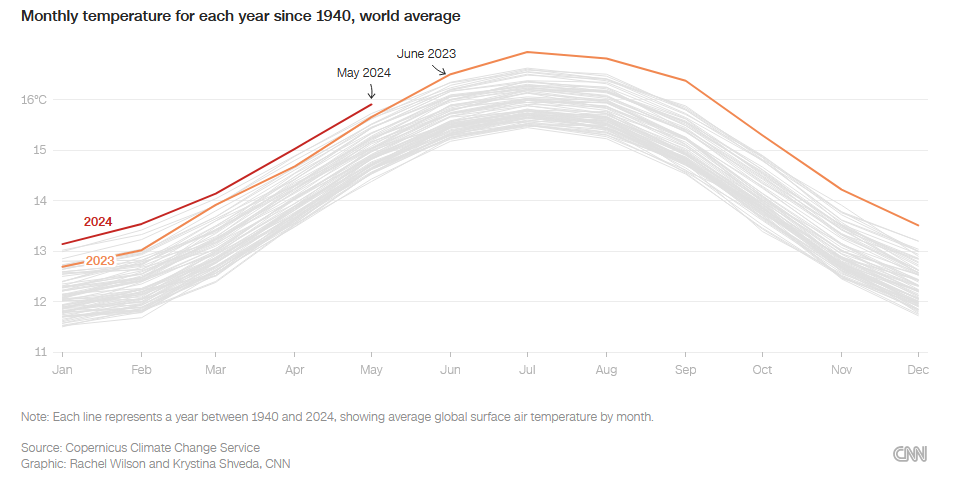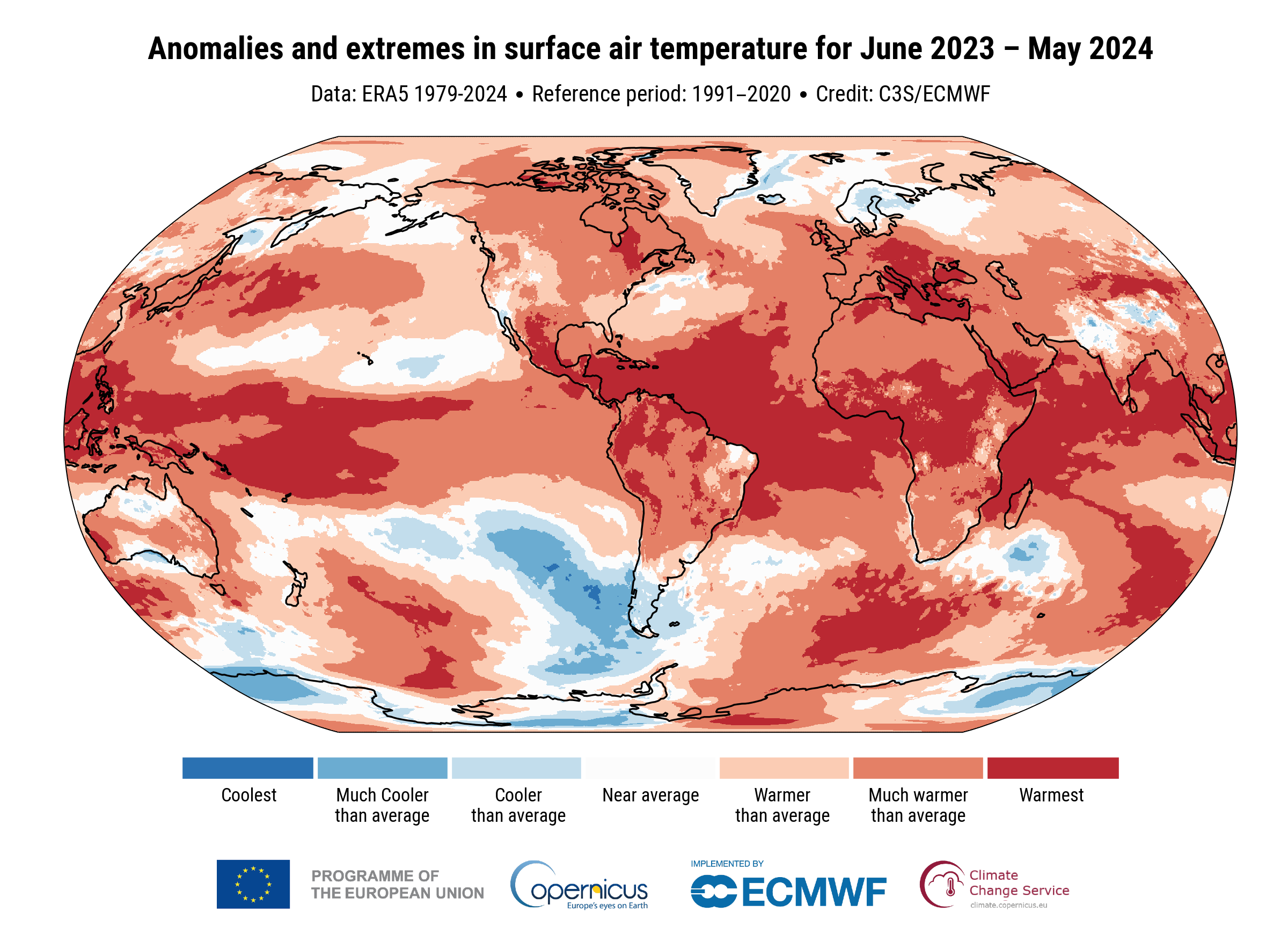The past 12 months have been the warmest on record compared to previous years. The average global temperature for the year to the end of May 2024 was 1.63 °C (2.9 °F) above the pre-industrial average, making it the warmest period since records began in 1940.
This was reported by the EU Climate Change Monitoring Service (Copernicus Climate Change Service or C3S).
Copernicus director Carlo Buontempo said the 12-month heatwave was “shocking but not surprising” given human-induced climate change, and warned that it could be even worse.
"Unless global warming fossil fuel pollution is reduced, this series of hottest months will be remembered as relatively cold," he said.
Therefore, UN Secretary General António Guterres, on June 5, World Environment Day, called for urgent action to prevent "climate hell".
This is how it looks graph of global average monthly temperatures for each year , starting from 1940:

Source: CNN.
Scientists say this 12-month average does not mean the world has already exceeded the global warming threshold of 1.5°C (2.7°F), which describes the average temperature over a decade, beyond which more extreme and irreversible changes could occur consequences.
In a separate report, the UN's World Meteorological Organization (WMO) said there is now an 80% chance that at least one of the next 5 years will be the first calendar year with an average temperature temporarily 1.5°C above pre-industrial levels – compared to 66% last year.
Surface air temperature anomalies and extremes for June 2023 – May 2024

Source: Copernicus Climate Change Service.
Speaking about the results of the study, Antonio Guterres emphasized how quickly the world is moving in the wrong direction and away from stabilizing the climate system.
"In 2015, the probability of such a gap was close to zero," he said.
With time to change course running out, the UN Secretary-General has called for a 30 percent reduction in global fossil fuel production and use by 2030.
According to Ben Clarke, a researcher at the Grantham Institute at Imperial College London, the recent extreme heatwaves that have swept the planet provide "a window into a future with extreme heat that challenges the limits of human survival".
"It is vital that people understand that every tenth degree of warming exposes more people to dangerous and potentially deadly heat," he stressed.
Earlier, EcoPolitic reported that Europe is heating up faster than the rest of the world. We also wrote that extremely rapid increase in ocean temperature scares scientists.





